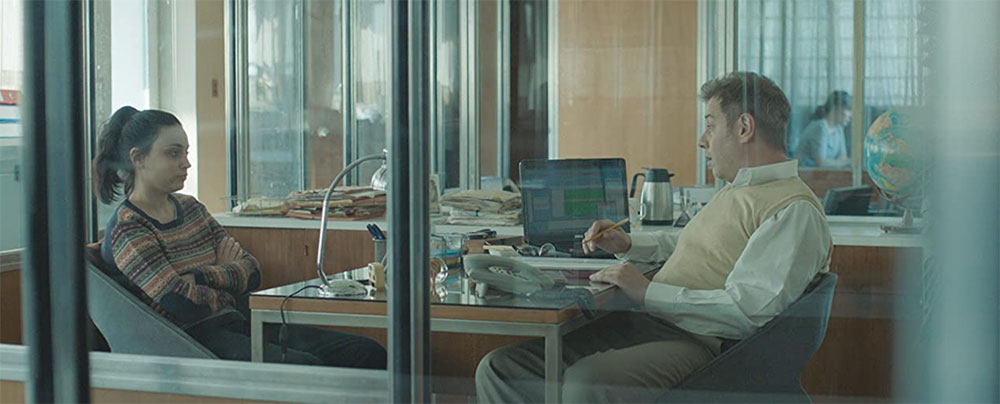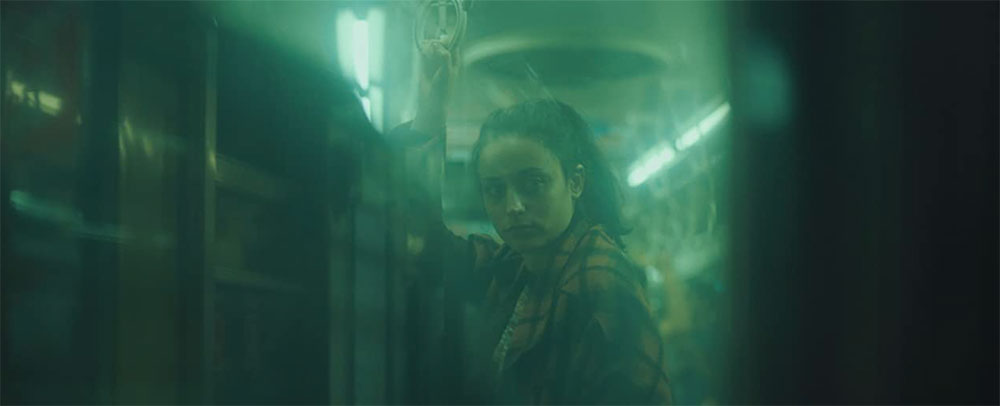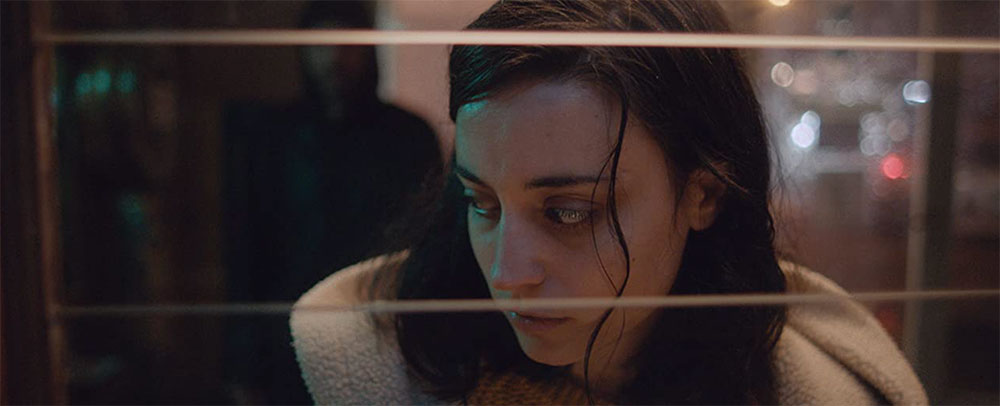The powerful Argentinian horror film “Leni” is a beautiful, deeply affecting, near flawless film about the terror of unresolved trauma and mental health.
Breathe. Just breathe. At this moment, that’s all you need to do. Breathe in. Breathe out. Then it should go away.
You try. You really do. Shakily, the breaths pump out in ragged wisps of air. So, why is it still there? Why can you still feel the eyes staring at you from all directions? That feeling in the pit of your stomach is still there. Your breath catches, and, slowly, you feel the familiar pressure of the world as it closes in around you. “Just breathe,” they all said.
This is what it can feel like to walk around with depression or other debilitating emotional issues. There’s a myriad of feelings that come with it, but they all seem to overlap and lead to the same result. No matter how loudly you scream into the void, no one seems to understand.
Writer and director, Federico Gianotti, shows an impressive understanding of the bodily and emotional hardships that accompany mental illness in his inaugural feature, LENI (2020). Set and filmed in Argentina, the film revolves around the titular character, Leni (Ailin Zaninovich), as she struggles against increasingly intense nightmares each night while trying to lead a stable life. The nightmares begin to bleed into her waking world, blurring the line between reality and twisted imagination. There’s something looming in the shadows. It’s covered in mud, and it’s coming for her.
Is she going mad; or is Leni on the verge of being dragged to a dark, muddy grave by an unstoppable force?
Gianotti has crafted a tale that is just as much about the effects felt by those suffering from trauma and depression as it is about our past coming back to haunt us.
The film is highly effective in both undertakings due to a brilliant mix of skillful directing, ingenious sound and music design, and a knockout performance by Zaninovich in the lead role. These three elements combined are what make LENI a special film for those who have experienced similar emotions.
Although it is not unique for a film to tackle these feelings, I felt uniquely understood when watching LENI. There are subtle details that only someone who has either felt the terror that accompanies mental struggles that overlap with depression — or paid close attention to those around them who have — would understand.
When I asked Gianotti about where his inspiration for the character of Leni came from, he replied:
“I wrote LENI during a week off work. I was tired, angry, and frustrated with my career. Somehow that made me connect with every wrong turn I took in life (which luckily are far behind) and my own relationship with violence and trauma. I’ve been where she’s been, afraid, trapped, locked inside my own emotions and pushing everyone else away, trying to fix things from the outside instead of looking in.”
His personal strife and relationship with trauma brood throughout the film.
Perhaps the most effective aspect of LENI is the way it uses audio to capture sensations that cannot be presented visually.
Sound designer, Yago Andrade, and composer, Jonathan Getjman, have made mental illness manifest in the film’s soundscapes. There’s a low, high-pitched ring when Leni is overwhelmed with stress that drifts gracefully into Getjman’s brooding, bassy score. The film’s visuals and sounds not only compliment each other, they take turns adding layer after layer of emotional distress that makes the seemingly normal world around Leni appear progressively more suffocating as the film goes on.
For anyone that has ever struggled with intense depression, trauma, or an emotional breakdown, the feelings conjured up by the film are maddeningly recognizable.
A prime example of this comes from a moment when Leni is in a small hardware store to buy supplies to fix her front door. The way Gianotti frames the interior of the store makes it look like a dreary, unpleasant place despite there being nothing really off about it, otherwise. It’s all in the aesthetic choices presented both visually and audibly that shape the space as an immensely unpleasant and difficult place for Leni to be in. Scenes like this abound throughout the film, giving it an experiential quality that sets it apart from many other such stories.
It’s easy to get swept up in the moments when the muddy monster stalks Leni’s dreams — and eventually her waking world, as well.
But it’s the exploration of her mental state that delivers the most grim, dread horror.
For anyone still haunted by past relationships, an abusive childhood, and/or the guilt of past transgressions, LENI is a film that understands the turmoil that comes with those situations. It makes clear that sometimes…breathing just doesn’t help. Sometimes, the darkness is too strong. As unsettling as it is to see someone on screen that embodies my own struggles, I have to say: It is comforting to feel seen.
LENI is still making its way around the film festival circuit. It recently had its world premiere at the Salem Horror Fest and its European premiere at the Molins Horror Film Festival.



















Follow Us!